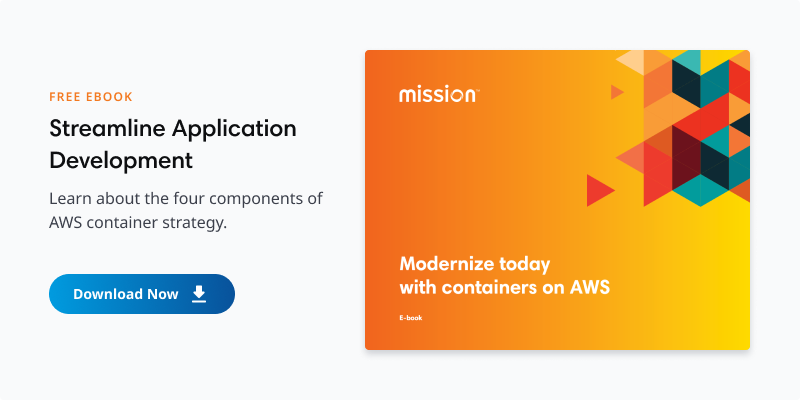Over the past few decades, the technology industry has learned from its mistakes. The process of turning an idea into a great usable product has evolved.
Margaret Hamilton, one of the original coders for the Apollo space mission, shared her experiences of wanting to add error checking to her code. Her managers denied her request until it was a proven problem. Nowadays, the concept of defensive coding and productionization is well known and desirable. Chances are, code will experience Murphy’s Law: what can go wrong, will.
Margaret Hamilton recognized that humans make mistakes. Although she was ahead of her time in the 1960s, you want engineers with that Margaret Hamilton mentality and ability to pre-empt errors working on your product. We must minimize the risk of errors in all aspects of our business and products. A current best practice to achieve this is automating processes to reduce human error, cost, and time.
DevOps engineers cover a large part of automation. This role encompasses four fields:
- Integration: Automated pipelines ensure code is up to scratch by checking style, security, and compliance and executing tests.
- Delivery: DevOps build, test, and deploy the product. This delivery includes provisioning infrastructure and ensuring the transition from development to production is smooth and secure.
- Monitoring: DevOps proactively monitor production, combined with anticipating what might go wrong, to catch issues before the user does. Monitoring performance over time and feeding this back to the development process ensures no negative impact on the user experience.
- Maintenance: DevOps update scripts and processes as your project evolves. They also adapt to changes in technologies and effectively use newly released features.
Each one of these is a continuous process. It’s not simply a case of performing each action once. Every stage requires in-depth technical knowledge and skill. It’s no wonder that DevOps Engineers command high salaries, with an average of $105k per year in the US.
With so much ground to cover, many organizations need an entire team of DevOps engineers. So, the question arises: Should you build and manage your DevOps team internally or outsource?
Some tech firms think that keeping all aspects of software development in-house is best, which is often our first instinct. This may work well for smaller projects. But widening your horizons may just be the best decision you make. Let’s explore why outsourcing DevOps may be right for you.
Passing on the Human Resources Burden
With many organizations not having yet adopted modern DevOps practices, the demand for talent continues to outweigh supply. As such, recruitment can be challenging. Tech jobs also typically have a high turnaround as employees move for higher pay. Recruitment can become a significant burden.
Be sure to factor in the cost and time-consuming nature of recruitment, retention, and replacement when you decide whether to outsource. Outsourcing DevOps may help cut your human resources overhead.
Having Experts at the Ready
Having another company with a vested interest in keeping your project thriving is beneficial. Partnering with seasoned DevOps technology experts brings advice on the best tools for the job, the latest techniques, and responsive feedback for your project.
Engineers at managed cloud service providers gain experience with many environments, projects, and companies.This means outsourced engineers are skilled at diagnosing and fixing problems quickly.
As technology evolves, so must your team. This professional growth requires research and training time. It depends on how capable and driven your engineers are toward self-study. Are they passionate enough to keep abreast of the changing times? Experts at a good service provider offer you support with technology road mapping to make the best of current technology.

Cutting the Bus Factor
All projects should take the bus factor into consideration. The bus factor refers to the number of team members that a metaphorical bus would have to hit before a project crumbles. Identifying these weaknesses and acting on them is one fundamental way to ensure project prosperity.
Too many projects have that single point of failure — that key person who sets the project back if they turn their focus elsewhere. It becomes a vicious cycle when the rockstar developer is reluctant to share their project expertise, making themselves more indispensable. Costs increase as these key personnel name their price because they know they are essential.
No individual team member should be so critical that the project grinds to a halt any time they want to take a vacation or need time off for an illness. This reliance on one person is far from ideal. Reducing these potential bottlenecks helps keep your project moving along.
With this silo mentality comes an insular culture. DevOps teams often adopt an “it’ll be ready when it’s ready” outlook. It’s challenging for management to determine if the timelines a DevOps team presents are realistic.
One method of quashing this problem is to onboard a partner company. Outsourcing prevents silos and increases accountability. It’s a fantastic feeling to have a team of experts behind you without worrying about losing a key team member.
Hiring an Elastic Team
Planning for the future is a critical element of business. You want your in-house team to be adaptable.
Adaptability is another advantage of outsourcing. Great service providers have the technical talent to expand your DevOps team to suit your needs without lengthy and costly recruitment. You get that burst of experience and team size to get everything up and running, then scale back or add extra resourcing when needed. This means you don’t have to invest in your own dedicated DevOps team in perpetuity.
Also, this adaptability isn’t just limited to team size. A change in technology choice is also less costly since your outsourced DevOps company has the resources to adapt.
Promoting Quality
In-house DevOps teams can be at risk of relaxing their practices to the detriment of the project. Engineers and support teams also need readily consumable knowledge of a company’s cloud infrastructure and applications. To ensure project longevity, the right DevOps provider can codify and document all procedures so they are available when needed.
Preventing Disaster
Any project can experience glitches, and, as Julius Caesar said, experience is the best teacher. Although an internal DevOps team is familiar with your stack, an outsourced DevOps team has experience they gained from dozens of cloud infrastructure rollouts.
A reputable DevOps provider has a wealth of experience. Working with many clients, an outsourced DevOps team gains an industry-wide point of view and is aware of many possible things that can go wrong, including the less common and less obvious.
This experience helps them plan for all potential outages and disasters a client may encounter – which means proactive disaster prevention and a low mean time to recovery (MTTR) when something does go wrong.
Finding Bugs
Working with another company provides an extra layer for fault checking — an opportunity to further scrutinize the setup and tear-down processes. If the outsourced company finds a fault, their engineers work with tech providers to get your services back up and running.
Additionally, outsourced teams have the advantage of being removed from development. In-house DevOps teams can get tunnel vision and become fixated on problems they expect to occur. A lack of external input can cause disaster blind spots. In contrast, separation of concerns provides the fresh eyes needed to hunt down problems before making it into production.
Using Infrastructure as Code
It’s not uncommon for developers to waste time due to inconsistencies between environments, often referred to as environment drift. Infrastructure as Code (IaC) is one way to combat this drift and drive down costs.
IaC automates and manages infrastructure by configuration. You can run reproducible experiments any place, any time, using tools such as Terraform.
Although some companies see an initial investment in IaC as an extravagance, it can pay off. It might take 20 hours to set up an environment every time or 40 hours to get a DevOps team to automate the process in code just once. This automation enables you to spin that environment up to spec at the click of a button and adapt it quickly. In this example, the initial investment pays for itself after the second spin-up.
Conclusion
Outsourcing DevOps to a reputable partner helps you access a team of highly experienced engineers who are as dedicated to helping your business succeed as any internal team.
Companies frequently outsource services such as accounting and legal since these require expert knowledge and experience that is hard to gain in one company. DevOps is no different.
Consider partnering with Mission to access DevOps talent without the human resource overhead. This partnership enables your developers to focus their efforts on adding value and delivering a great product.
Explore the Mission Cloud Elevate service to discover the benefits of outsourcing your DevOps, and contact Mission to learn more.




